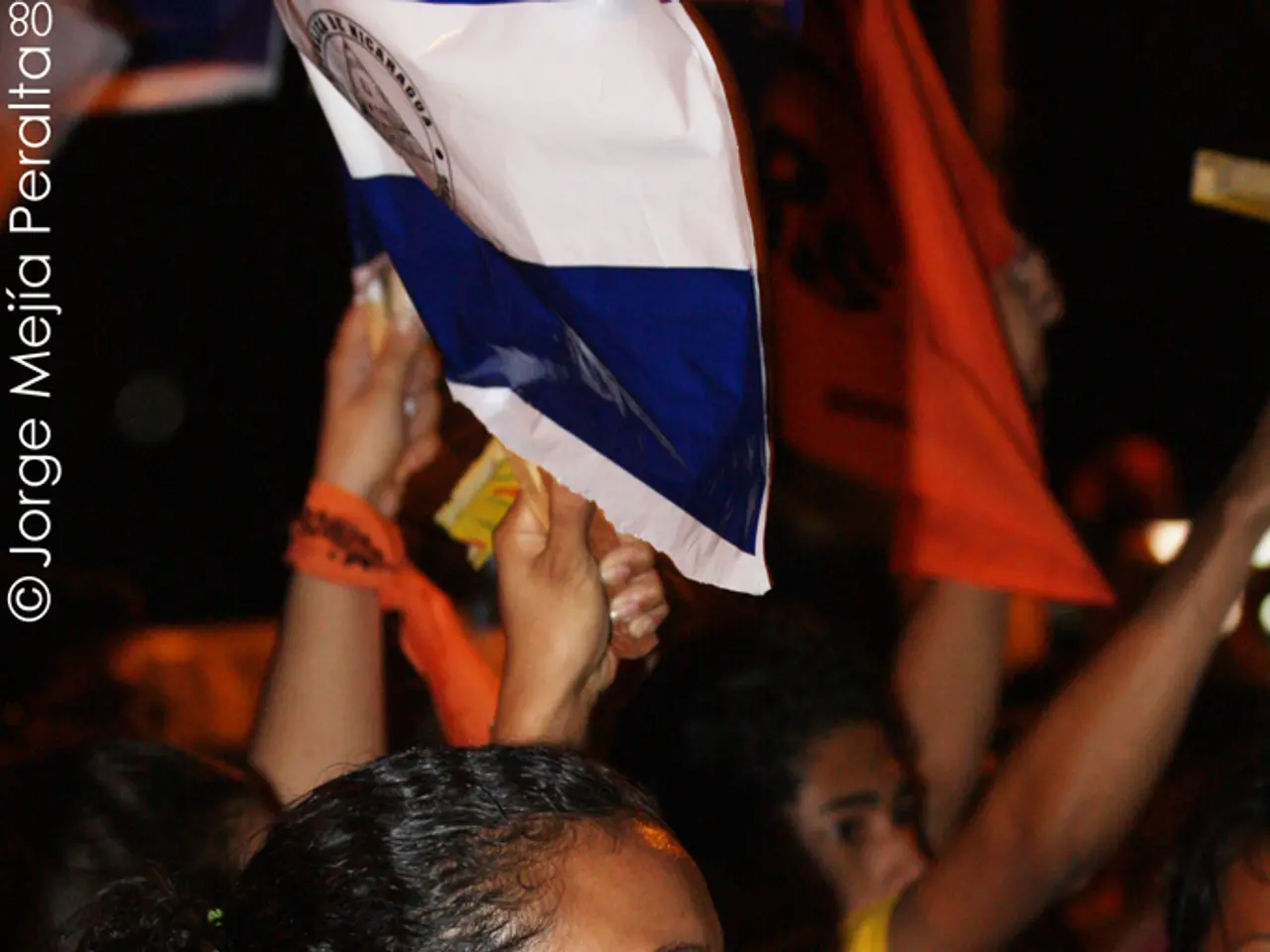Mass demonstrations occur in Tel Aviv, denouncing the Israeli government's decision to augment the conflict in Gaza.
Israel's decision to expand its operations in Gaza and capture Gaza City has sparked widespread international criticism, with key foreign powers and international organizations expressing serious concerns about the humanitarian and legal implications.
In a bold move, Israel's security cabinet greenlighted plans for a major operation to seize Gaza City on Friday. However, the current international response has predominantly been critical.
France, for instance, has strongly condemned Israel's plan to take control of Gaza City and expand military operations across the Gaza Strip. The French government stated that such actions would involve forced displacement and occupation, constitute serious violations of international law, and undermine prospects for peace and regional stability. France emphasized that the plan would not improve Israel's security nor aid in the release of hostages, urging Hamas to release hostages and adopt ceasefire proposals instead.
Similarly, the UK's Prime Minister Keir Starmer voiced criticism, warning that expanding fighting would "only bring more bloodshed."
International organizations like the United Nations have called for ceasefires and humanitarian truces, emphasizing the critical humanitarian situation in Gaza. The UN General Assembly passed a resolution in late 2023 calling for immediate cessation of hostilities, reflecting broad international concern about the violence and its consequences.
In contrast, the United States, a key Israeli ally, has effectively approved Israel's plan, not expressing major public concern about the expansion. Former President Trump stated that it is "up to Israel." Meanwhile, Israeli internal voices, including military leadership, have warned against escalation due to the potential for increased humanitarian crises and operational risks.
The Israeli government has announced preparations to relocate Palestinians within Gaza to the south ahead of the military offensive to minimize civilian casualties. However, ongoing Israeli airstrikes continue to cause civilian casualties.
Concerns raised by foreign powers and organizations include the humanitarian impact, violation of international law, regional stability risk, hostage situation, and peace prospects. These responses reflect a broad international call for restraint, respect for international law, protection of civilians, and efforts toward diplomacy rather than further military escalation.
Thousands, tens of thousands, or up to 100,000 demonstrators took to the streets in Tel Aviv on Saturday, calling for an end to the war in Gaza. The Palestinian Authority (PA) and other international bodies have been pushing for a negotiated ceasefire to secure the hostages' return and help alleviate a humanitarian crisis in the Strip.
The PA president, Mahmud Abbas, said the plan "constitutes a new crime." Shahar Mor Zahiro, a relative of a slain hostage, stated that if hostages are murdered during the conflict, they will pursue Prime Minister Benjamin Netanyahu. At least 37 people were killed by Israeli fire across Gaza on Saturday, including 30 civilians who were waiting to collect aid.
Statements were issued by the foreign ministers of Italy, Australia, Germany, New Zealand, and the United Kingdom, condemning the decision to occupy Gaza City. The PA emphasized the importance of enabling the State of Palestine to assume its full responsibilities in the Gaza Strip.
As the situation unfolds, the international community continues to urge Israel to reconsider its actions and seek peaceful solutions to the ongoing conflict.
- The French government has stated that Israel's plan to take control of Gaza City and expand military operations would constitute serious violations of international law, involve forced displacement and occupation, and undermine prospects for peace and regional stability.
- International organizations, such as the United Nations, have called for ceasefires and humanitarian truces, emphasizing the critical humanitarian situation in Gaza and the need for immediate cessation of hostilities.
- Thousands, tens of thousands, or up to 100,000 demonstrators took to the streets in Tel Aviv, calling for an end to the war in Gaza, with the Palestinian Authority (PA) and other international bodies pushing for a negotiated ceasefire to secure the hostages' return and help alleviate a humanitarian crisis in the Strip.








